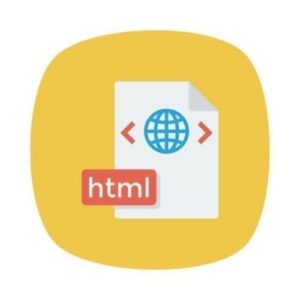This is a topic I figured I’d write about, considering it arises with current and potential clients often. Most people know that they have a website, and they bought the domain name at some point in time, but it usually ends there. When the main questions crop up like “What is your website built on?”, “Do you have your website files?”, and “Where is your website currently hosted?”, it is easy to tell that these concepts were never explained to begin with.
Let me briefly attempt to explain just how the domain you purchased (example.com) ended up having webpages and graphics on it when you type it into your browser:
- Your domain name is basically a vanity for an IP address that a hosting company (like GoDaddy, Bluehost) visitors will go to. When the internet started being used on a large scale, IP addresses were the means of getting to a website (and example.com looks a lot better than 129.23.091.23).
- Once you purchase a domain, you essentially contact your host to “point” your domain to the hosting IP address you acquired when purchasing hosting.
- Through the host, you have access to a server, which will then “serve” a visitor the files that comprise your website. Essentially, a website is simply a server supplying a browser with the files necessary to interact with the entire website.
 That may not paint a complete picture of how a website works, but frankly it took me some time working in the industry myself before it all clicked. The key takeaway is understanding that a website is basically a folder that stores a bunch of files. This makes it easier to see why many people have no clue where their website is, or how to get it.
That may not paint a complete picture of how a website works, but frankly it took me some time working in the industry myself before it all clicked. The key takeaway is understanding that a website is basically a folder that stores a bunch of files. This makes it easier to see why many people have no clue where their website is, or how to get it.
You only have your website right now through three means:
- You built it yourself from scratch (HTML or another web language) or a Content Management System (WordPress, Joomla).
- You built your website using a third-party platform like GoDaddy website builder, Squarespace, Wix etc.
- You hired a company like mine to create it for you
If you built it yourself, you know where your host and registrar for the website are, so you wouldn’t need any assistance determining where your website is.
If you used a third-party platform, chances are you had to do something with your domain for it to work with the third-party, and they technically host it. The cost of having to host it is rolled into their monthly fee. When you are creating your website on their platform, you are creating/altering files on their server. If there was ever a time where you wanted to outright have this website in your possession, the likelihood is minimal since it would require them to forfeit proprietary information for you to host elsewhere. Basically, don’t expect to completely “own” your website should you use one of these services.
And for the third one – what happens when a company built your website? Where is it?
The protocol that company should follow for you to have the website in your complete possession should resemble this:
- Website is created on the company’s test server
- Company obtains domain information
- The company will either coordinate the new website to go on your current hosting or advise you what hosting company is reliable
- Once the site is approved, the website company will set it up on your hosting server, test it, and make sure it is completely good to go
So why does something so simple seem to never go this way? Here are some reasons:
- The website company hosts on their server afterwards, in turn not providing the files of your finished website and attempting to charge you for their monthly hosting fees
- The website company claims the information is proprietary and will not surrender the files of the website
- The website is bundled and transferred in an overly complex fashion with esoteric instructions on how to host the website yourself
 So what do we get from this? When considering building a new website or finding out the status of your current site, always consider the following:
So what do we get from this? When considering building a new website or finding out the status of your current site, always consider the following:
- Where did you buy your domain and did you buy the host?
- Where will your website be hosted once it is up?
- Will you get all your website files should you decide to do something with your website?
- Will you get to keep all the assets on the website, like content and images?
- If you host with a web company, how much will it cost?
At Market My Market, our web team can handle the heavy lifting when getting your website live. We keep you up-to-date on changes, both for when the website is in progress on our test server and when it welcomes visitors who could convert as your future leads. Contact us today to schedule a free digital marketing consultation and learn more about what we can do for you.

MMM Author Ryan Klein
The ongoing digital revolution is transforming the way that all businesses interact with clients and customers. Consumers rely heavily on digital channels for researching products and services and expect to make buying choices with the swipe of a finger. For organizations that want to remain competitive, having a defined digital marketing strategy and execution plan is essential for successful outcomes. With a demonstrated history of creating and implementing strategic digital marketing initiatives that drive growth, I am committed to delivering real, measurable results for my clients.
